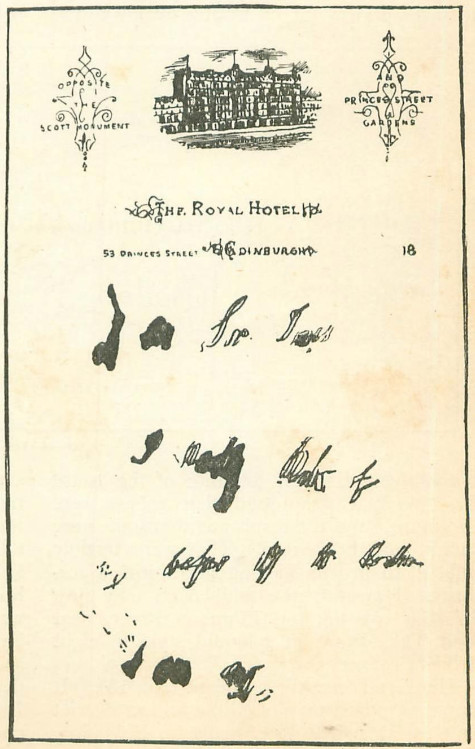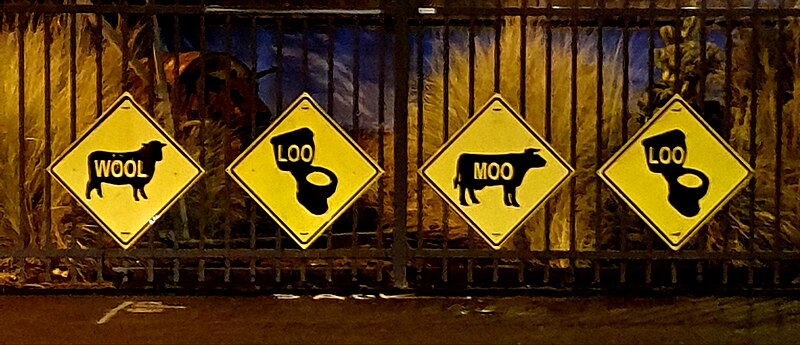
These signs are posted on Cathedral Street in Woolloomooloo, New South Wales.

These signs are posted on Cathedral Street in Woolloomooloo, New South Wales.
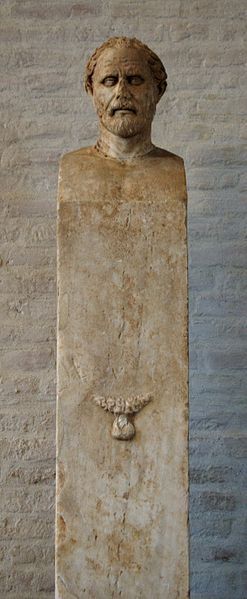
Ancient Athenians would sometimes encounter a remarkable sculpture on roads and in public places: The bearded head of the god Hermes set on a squared pillar of stone, with male genitals carved at the appropriate height. Hermes had been a phallic god before becoming a guardian of merchants and travelers, and so was associated with fertility, luck, roads, and borders. The hermae served as a form of protection from evil and were sometimes anointed with oil or bedecked with garlands.
Plato writes that “figures of Hermes” were set up “along the roads in the midst of the city and every district town” “with the design of educating those of the countryside,” sometimes by bearing edifying inscriptions. The sculptures did not always depict Hermes — this one, from the Athenian Agora, honors Demosthenes. The practice spread eventually to Rome, where the figures were known as mercuriae.
(Peter Keegan, Graffiti in Antiquity, 2014.)
A Statesman who attended a meeting of a Chamber of Commerce rose to speak, but was objected to on the ground that he had nothing to do with commerce.
‘Mr. Chairman,’ said an Aged Member, rising, ‘I conceive that the objection is not well taken; the gentleman’s connection with commerce is close and intimate. He is a commodity.’
— Ambrose Bierce, Fantastic Fables, 1899
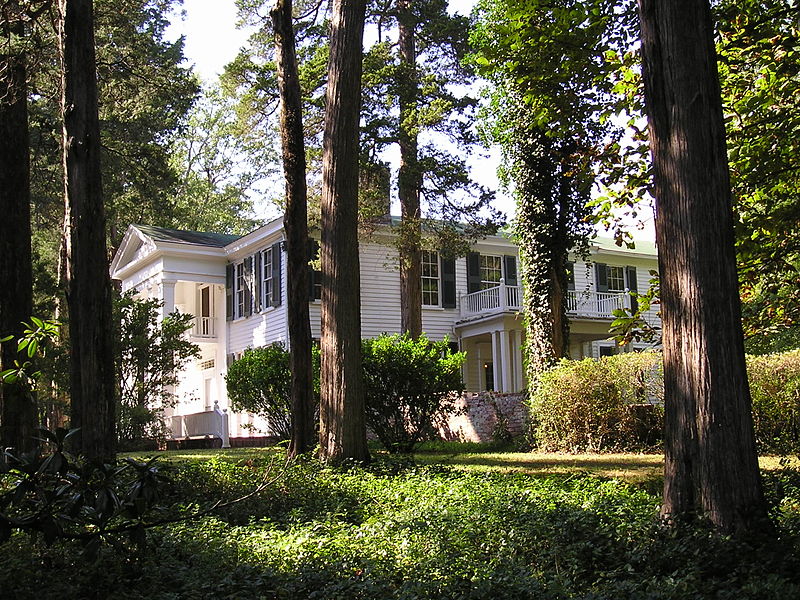
One summer afternoon in 1932, William Faulkner and his wife Estelle were sitting on the side porch of their home in Oxford, Mississippi.
She said, “Does it ever seem to you that the light in August is different from any other time of the year?”
He said, “That’s it!”, disappeared into the house, and returned a moment later.
“What he had done was to go to his worktable and draw four pen strokes through the title ‘Dark House,'” Estelle wrote later. “Above and slightly to the left he printed ‘Light in August.'”
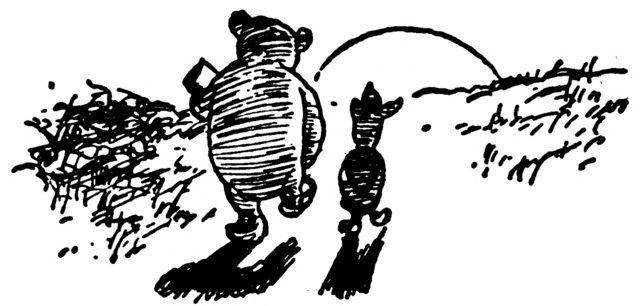
If you rearrange the letters in WHAT IS THE MEANING OR PURPOSE OF LIFE?, you get WINNIE-THE-POOH, SUFFER PIGLET’S AROMA.
(Discovered by John Henrick, Word Ways, May 1989.)
In a 1985 op-ed in the New York Times, writer Maggie Sullivan proposed some irregular verbs to match go, went, gone:
furlough, furlent, furlon: “All the soldiers were furlon except those the captain furlent last week.”
subdue, subdid, subdone: “Nothing else could have subdone him the way her violet eyes subdid him.”
frisbee, friswas, frisbeen: “Although he had never frisbeen before, after watching the tournament he friswas every day, trying to frisbee as the champions friswere.”
pay, pew, pain: “He had pain for not choosing a wife more carefully.”
conceal, console, consolen: “After the murder, Jake console the weapon.”
seesaw, sawsaw, seensaw: “While the children sawsaw, the old man thought of long ago when he had seensaw.”
fit, fat, fat: “The vest fat Joe, whereas the jacket would have fat a thinner man.”
ensnare, ensnore, ensnorn: “In the ’60s and ’70s, Sominex ads ensnore many who had never been ensnorn by ads before.”
displease, displose, displosen: “By the look on her face, I could tell she was displosen.”
Commemorate could emulate eat: “At the banquet to commemoreat Herbert Hoover, spirits were high, and by the end of the evening many other Republicans had been commemoreaten.”
(Maggie Sullivan, “You, Too, Can Strengthen English, and Write Good,” New York Times, May 4, 1985.)
If we have two numbers a and b such that ab + 1 is square, then it’s always possible to find a number c for which ac + 1 and bc + 1 are both square. For example, 8 × 3 + 1 = 25 = 52, and 8 × 21 + 1 = 169 = 132 and 3 × 21 + 1 = 64 = 82.
Proof:
If ab + 1 = m2, then set c = a + b + 2m. Now
ac + 1 = a2 + ab + 2am + 1 = a2 + 2am + m2 = (a + m)2
bc + 1 = ab + b2 + 2bm + 1 = b2 + 2bm + m2 = (b + m)2
Via Edward Barbeau, Power Play, 1997.

Every March since 2010, a white stork named Yaren has departed Africa, flown to the village of Eskikaraağaç in Turkey, and landed on the boat of fisherman Adem Yılmaz on the shore of Uluabat Lake. It spends six months in the village, fishing with Yılmaz every morning, then returns to Africa.
A statue of the two now stands in the village’s central square. A live broadcast of stork’s nest is here.
calophantic
adj. pretending or making a show of excellence
velleity
n. a mere wish, unaccompanied by an effort to obtain it
fode
v. to lead on with delusive expectations
magnoperate
v. to magnify the greatness of
Roman diplomat Sidonius Apollinaris describes the hunting skill of Visigoth king Theodoric II:
If the chase is the order of the day, he joins it, but never carries his bow at his side, considering this derogatory to royal state. … He will ask you beforehand what you would like him to transfix; you choose, and he hits. If there is a miss … your vision will mostly be at fault, and not the archer’s skill.
(Quoted in Norman Davies, Vanished Kingdoms, 2012.)
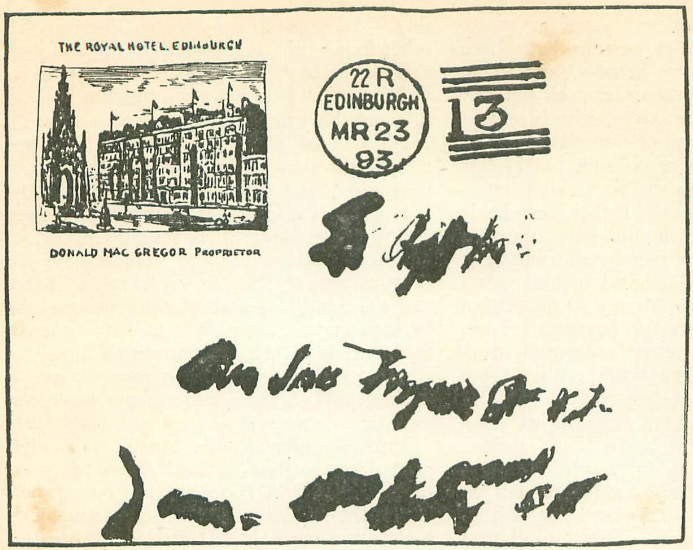
The British post office had to make sense of this address in 1893. It reads “The Right Hon. Sir James Fergusson, P.C., 25, Tedworth Square, S.W.”
Ironically Fergusson had been postmaster-general of Australia.
The writer was Thomas Denman, the future governor-general. The first page of the letter is below: “Dear Sir James, — I hardly think of coming before 11th to London. I am afraid I might …”
